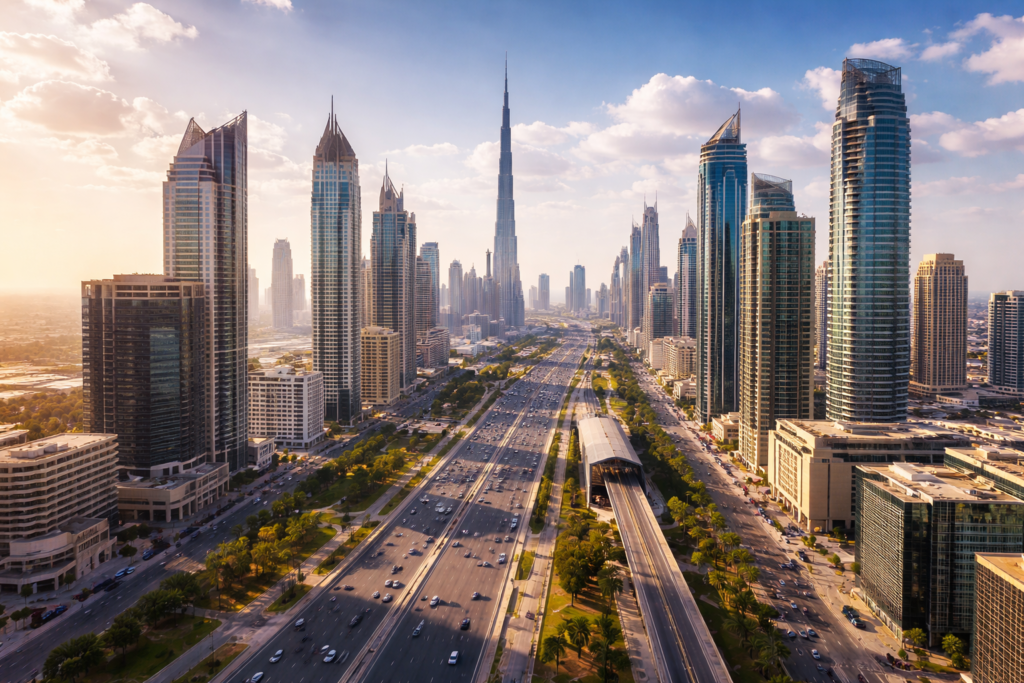Why Sheikh Zayed Road Remains Dubai’s Most Powerful Property Corridor
Why Sheikh Zayed Road Remains Dubai’s Most Powerful Property Corridor Sheikh Zayed Road is more than just a highway it is the backbone of Dubai’s real estate identity. Stretching across the city’s most prominent business and lifestyle districts, this iconic corridor has consistently remained one of the most valuable and sought-after property zones in the UAE. From commercial towers to luxury residences, Sheikh Zayed Road continues to attract investors, businesses, and end-users alike. Here’s why it still holds its position as Dubai’s most powerful property corridor. A Prime Location That Defines Connectivity One of Sheikh Zayed Road’s strongest advantages is its unmatched connectivity. The road links key commercial districts such as Downtown Dubai, DIFC, Business Bay, and Dubai Marina, making it a strategic location for both residential and commercial real estate. With direct access to major landmarks, metro stations along the route, and seamless connectivity to airports and business hubs, properties on Sheikh Zayed Road offer convenience that few locations can rival. Strong Demand for Commercial Real Estate Sheikh Zayed Road remains a top choice for corporate offices, multinational companies, and financial institutions. Its prestige, visibility, and proximity to major business districts make it ideal for companies seeking a high-profile address. Office spaces along this corridor benefit from: High occupancy rates Strong rental demand Long-term lease stability Premium tenant profiles This consistent commercial demand helps maintain property value and rental yields over time. Residential Appeal with Urban Lifestyle Benefits Beyond commercial spaces, Sheikh Zayed Road also offers a range of residential options, from high-rise apartments to serviced residences. Residents enjoy proximity to dining, retail, entertainment, and business centers all within minutes. The urban lifestyle appeal, combined with excellent infrastructure, continues to attract professionals and investors seeking rental income from centrally located homes. Long-Term Investment Stability Unlike emerging areas that fluctuate with market cycles, Sheikh Zayed Road has demonstrated long-term stability. Properties along the corridor tend to retain value due to: Limited availability of new land Established infrastructure Continuous demand from businesses and residents Government-backed development planning For investors, this makes Sheikh Zayed Road a lower-risk option with steady returns. Infrastructure That Supports Property Value Sheikh Zayed Road benefits from continuous infrastructure upgrades, including metro expansions, road enhancements, and surrounding area developments. This ongoing investment ensures the corridor remains relevant, functional, and attractive for future generations. Strong infrastructure directly contributes to sustained property demand and appreciation. A Prestigious Address That Never Loses Value In Dubai’s competitive real estate market, address matters. Sheikh Zayed Road carries a reputation that adds brand value to properties located along it. Whether for commercial branding or residential prestige, this corridor remains a symbol of status and reliability. Final Thoughts Sheikh Zayed Road continues to dominate Dubai’s property market because it offers what investors value most: location, demand, stability, and long-term growth potential. Its ability to adapt while maintaining its core strengths makes it one of the most powerful real estate corridors in the region. For buyers, tenants, and investors alike, Sheikh Zayed Road remains a strategic choice in Dubai’s ever-evolving property landscape.
Why Sheikh Zayed Road Remains Dubai’s Most Powerful Property Corridor Read More »



